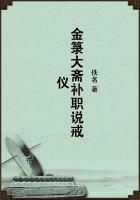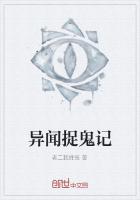Yet this hypothetical average human being must be found, or I must stay for ever haunted by the thought that I am not supplying him with what he wants!" And the writer became more and more discouraged, for to arrogate to himself knowledge of all the heights and depths, and even of all the virtues and vices, tastes and dislikes of all the people of the country, without having first obtained it, seemed to him to savour of insolence. And still more did it appear impertinent, having taken this mass of knowledge which he had not got, to extract from it a golden mean man, in order to supply him with what he wanted. And yet this was what every artist did who justified his existence--or it would not have been so stated in a newspaper. And he gaped up at the lofty ceiling, as if he might perchance see the Public flying up there in the faint bluish mist of smoke. And suddenly he thought : "Suppose, by some miracle, my golden-mean bird came flying to me with its beak open for the food with which it is my duty to supply it--would it after all be such a very strange-looking creature; would it not be extremely like my normal self? Am I not, in fact, myself the Public? For, without the strongest and most reprehensible conceit, can I claim for my normal self a single attribute or quality not possessed by an hypothetical average human being? Yes, I am myself the Public; or at all events all that my consciousness can ever know of it for certain." And he began to consider deeply. For sitting there in cold blood, with his nerves at rest, and his brain and senses normal, the play he had written did seem to him to put an unnecessary strain upon the faculties. "Ah!" he thought, "in future I must take good care never to write anything except in cold blood, with my nerves well clothed, and my brain and senses quiet. I ought only to write when I feel as normal as I do now." And for some minutes he remained motionless, looking at his boots. Then there crept into his mind an uncomfortable thought. "But have I ever written anything without feeling a little-abnormal, at the time? Have I ever even felt inclined to write anything, until my emotions had been unduly excited, my brain immoderately stirred, my senses unusually quickened, or my spirit extravagantly roused? Never! Alas, never!
I am then a miserable renegade, false to the whole purpose of my being--nor do I see the slightest hope of becoming a better man, a less unworthy artist! For I literally cannot write without the stimulus of some feeling exaggerated at the expense of other feelings. What has been in the past will be in the future: I shall never be taking up my pen when I feel my comfortable and normal self never be satisfying that self which is the Public!" And he thought:
"I am lost. For, to satisfy that normal self, to give the Public what it wants, is, I am told, and therefore must believe, what all artists exist for. AEschylus in his 'Choephorae' and his 'Prometheus'; Sophocles in his 'OEdipus Tyrannus'; Euripides when he wrote 'The Trojan Women,' 'Medea,'--and 'Hippolytus'; Shakespeare in his 'Leer'; Goethe in his 'Faust'; Ibsen in his 'Ghosts' and his 'Peer Gynt'; Tolstoy in 'The Powers of Darkness'; all--all in those great works, must have satisfied their most comfortable and normal selves; all--all must have given to the average human being, to the Public, what it wants; for to do that, we know, was the reason of their existence, and who shall say those noble artists were not true to it? That is surely unthinkable. And yet--and yet--we are assured, and, indeed, it is true, that there is no real Public in this country for just those plays! Therefore AEschylus, Sophocles, Euripides, Shakespeare, Goethe, Ibsen, Tolstoy, in their greatest works did not give the Public what it wants, did not satisfy the average human being, their more comfortable and normal selves, and as artists were not true to the reason of their existence. Therefore they were not artists, which is unthinkable; therefore I have not yet found the Public!"
And perceiving that in this impasse his last hope of discovery had foundered, the writer let his head fall on his chest.
But even as he did so a gleam of light, like a faint moonbeam, stole out into the garden of his despair. "Is it possible," he thought, "that, by a writer, until his play has been performed (when, alas! it is too late), 'the Public' is inconceivable--in fact that for him there is no such thing? But if there be no such thing, I cannot exist to give it what it wants. What then is the reason of my existence? Am I but a windlestraw?" And wearied out with his perplexity, he fell into a doze. And while he dozed he dreamed that he saw the figure of a woman standing in darkness, from whose face and form came a misty refulgence, such as steals out into the dusk from white campion flowers along summer hedgerows. She was holding her pale hands before her, wide apart, with the palms turned down, quivering as might doves about to settle; and for all it was so dark, her grey eyes were visible-full of light, with black rims round the irises. To gaze at those eyes was almost painful; for though they were beautiful, they seemed to see right through his soul, to pass him by, as though on a far discovering voyage, and forbidden to rest.
The dreamer spoke to her: "Who are you, standing there in the darkness with those eyes that I can hardly bear to look at? Who are you?"
And the woman answered: "Friend, I am your Conscience; I am the Truth as best it may be seen by you. I am she whom you exist to serve."
With those words she vanished, and the writer woke. A boy was standing before him with the evening papers.
To cover his confusion at being caught asleep he purchased one and began to read a leading article. It commenced with these words:
"There are certain playwrights taking themselves very seriously; might we suggest to them that they are in danger of becoming ridiculous . . . ."
The writer let fall his hand, and the paper fluttered to the ground.
"The Public," he thought, "I am not able to take seriously, because I cannot conceive what it may be; myself, my conscience, I am told I must not take seriously, or I become ridiculous. Yes, I am indeed lost!"
And with a feeling of elation, as of a straw blown on every wind, he arose.
1910.















